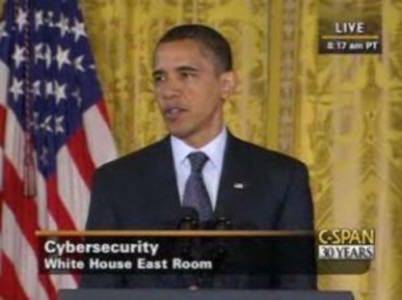Earlier today, President Obama announced that he plans to create the position of a ‘cyber czar’ in the White House. No announcement about who will fill this position has been made yet, however. During his speech about this topic earlier today, Obama stressed that the focus of this new position will be to deal with cyber threats, but that the White House also plans a new education campaign to raise awareness about cyber security and digital literacy.

It should be noted that while ‘czar’ might sound like an impressive title, in terms of the White House hierarchy, this new position will only be that of a “special assistant to the President,” and whoever will fill this position will not have direct access to the President and have very little authority and even less authority over budgets.
According to Obama, whose announcement was not related to a similar announcement many are expecting from the Pentagon about the creation of a new “cyberspace war command,” the Internet should be “open and free,” though we are not sure if he was wading into the dark, muddy pool of net neutrality here.
According to Obama, not only do we depend on ‘cyberspace’ every single day (“cyberspace is real,” he said), but, paradoxically, while the web empowers us to create great things, it also opens up a door to criminals. Cyber crime, according to Obama, costed about $8 billion in the last two years.

The focus of the announcement was squarely on ensuring privacy, preventing identity theft, and stopping hackers, but another emphasis of this new position would be to mediate between government and private industry initiatives, as well as ensuring communication about this topic between different government agencies. Protecting the “nation’s information infrastructure” will be a priority for the White House.
As a side note, Obama also mentioned that hackers were able to hack the Obama campaign’s systems last year.
What can Government Really Do?
There is something odd about hearing the government talk about this topic, though. While the Pentagon is obviously interested in this, not only to take out the networks of other countries, but also to prevent others from taking down its own networks, it just seems somewhat naive that a government initiative could do anything to prevent hackers from creating a botnet or breaking into government computers. While it is definitely a great idea to make sure that government agencies use the best possible methods to protect themselves, in the end, at least in the private space, what (besides more education) could a government do about users who don’t run anti-virus software and don’t patch their operating systems?





















